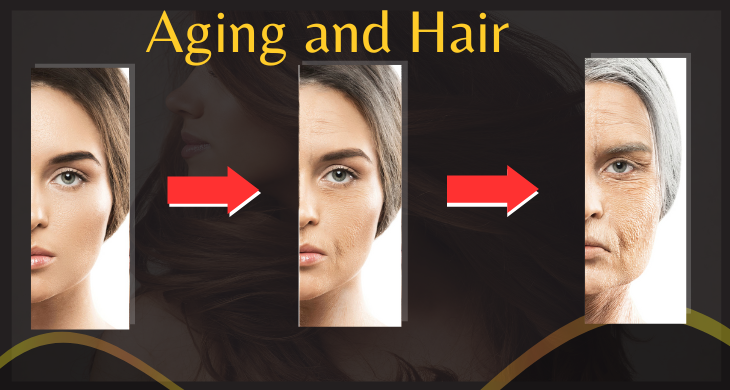Aging and Hair: Exploring the Impact of Age-Related Changes on Hair Color, Texture, and Density

Introduction:
As we age, our bodies undergo various changes, and our hair is no exception. Understanding how age impacts hair color, texture, and density can offer valuable insights into the effects of aging on our overall appearance. In this article, we will delve into the categorization of hair based on age-related changes, exploring the transformations that occur over time.
Body:
Changes in Hair Color:
As we get older, one of the most noticeable transformations is the change in hair color. Gray or white hair often replaces the vibrant shades of our youth. This shift occurs due to a decrease in melanin production, the pigment responsible for hair color. Understanding this natural process can help us embrace and manage the changes gracefully.
Texture Alterations:The texture of our hair also evolves with age. What was once silky and smooth may become coarse and brittle. This change is primarily influenced by hormonal shifts and reduced oil production. By recognizing these shifts, we can adapt our hair care routines and seek appropriate products to nourish and maintain healthy hair texture.
Density Reduction:
Hair density, or the number of hair follicles per square inch of the scalp, tends to decrease as we age. Thinning hair and receding hairlines become common concerns. This decline in density is attributed to a combination of genetic predisposition, hormonal changes, and the natural aging process. Understanding the factors behind this transformation can help individuals explore potential solutions or coping mechanisms.
FAQs:
Q1: Can I prevent my hair from turning gray?
A1: While you cannot completely prevent hair from turning gray, certain lifestyle choices like a balanced diet, avoiding smoking, and managing stress levels may help slow down the graying process.
Q2: Can hair products restore the original texture of my hair?
A2: While no product can entirely reverse the natural aging process, using quality hair care products specifically designed for mature hair can help improve texture and manageability.
Q3: Are there any effective treatments for thinning hair?
A3: There are various treatments available for thinning hair, such as medications, topical solutions, and hair transplant procedures. Consulting with a healthcare professional or a trichologist can help determine the best course of action for individual needs.
Conclusion:
Understanding the changes that occur in our hair as we age can provide valuable insights into the effects of aging on hair characteristics. By recognizing and accepting these transformations, we can adapt our hair care routines, explore suitable products, and embrace our natural beauty. Remember, aging gracefully includes embracing every aspect of ourselves, including our evolving hair.
